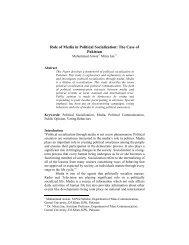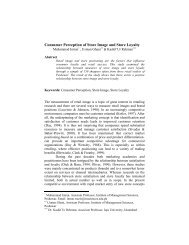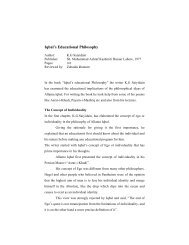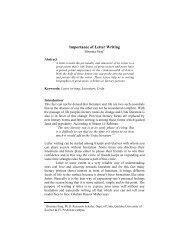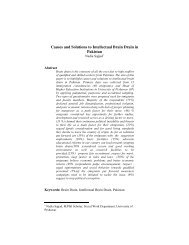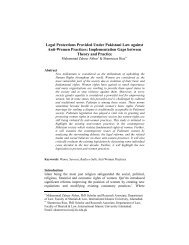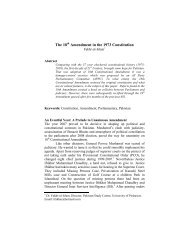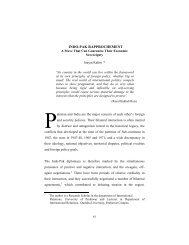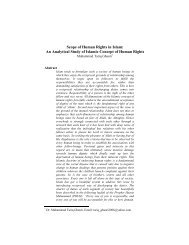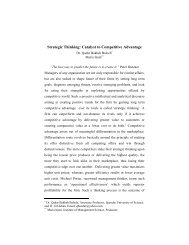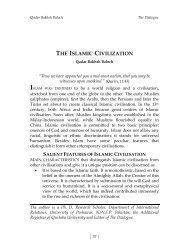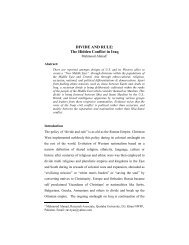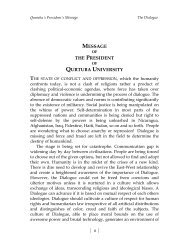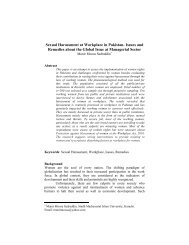COLD WAR POLITICS OF SUPERPOWERS IN SOUTH ASIA Abstract
COLD WAR POLITICS OF SUPERPOWERS IN SOUTH ASIA Abstract
COLD WAR POLITICS OF SUPERPOWERS IN SOUTH ASIA Abstract
Create successful ePaper yourself
Turn your PDF publications into a flip-book with our unique Google optimized e-Paper software.
Soviet leadership was even hopeful that the close relationship with India<br />
would help to reduce western influence in the region. 82 Moscow’s relationship<br />
with New Delhi had been built primarily on a mutual sense of need-a shared<br />
perception in each state that the friendship of the other was essential to the<br />
preservation of its own security. 83 The Soviets had sought to build strong and<br />
lasting commercial ties with India-both as a way of weakening the fabric of<br />
“imperialist” economies and as a useful partner for their own economy-and,<br />
through propaganda and cultural exchange, to create attitudes among the<br />
Indian elite and masses that were favourable to the Soviet. However, India<br />
desired more balance in its relations with the “great power triangle” than the<br />
Soviets would have liked, however, and the Soviets sought to maintain more<br />
balance in their own relations in the subcontinent than India desired or needed.<br />
However, the Soviet adopted a moderate policy toward Pakistan; its support<br />
for the Indian position on Kashmir disappeared from Indo-Soviet<br />
communiqués and Moscow proclaimed its neutrality in the disputes between<br />
India and Pakistan. The Soviet also took a similar position during the Indo-<br />
Pakistan war of 1965 and Pravda asserted, “We would like Soviet-Pakistan<br />
relations, like our traditional friendship with India, to be a stabilising factor in<br />
the situation in Asia and to contribute to the normalisation of relations<br />
between India and Pakistan.” 84<br />
During the Indo-Pakistan war of 1965, Premier Kosygin volunteered to<br />
provide the “good offices” of the Soviet Union in helping to settle the conflict<br />
between Pakistan and India. It was a clear indication of the Soviet’s interest<br />
and stature in the region. The Soviet was the only superpower capable of<br />
intervening in the conflict and bringing about a peaceful settlement which<br />
would have been all but impossible if left to the devices of the Indians and<br />
Pakistanis themselves. 85 Moscow also used its efforts in the United Nations to<br />
promote a cease-fire and in January 1966 both countries accepted Soviet<br />
mediation and at the invitation of Premier Alexei Kosygin, India and Pakistan<br />
93



